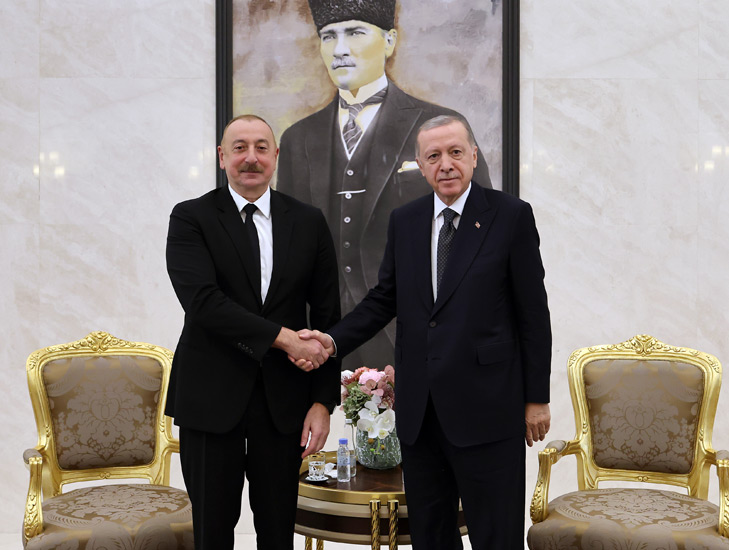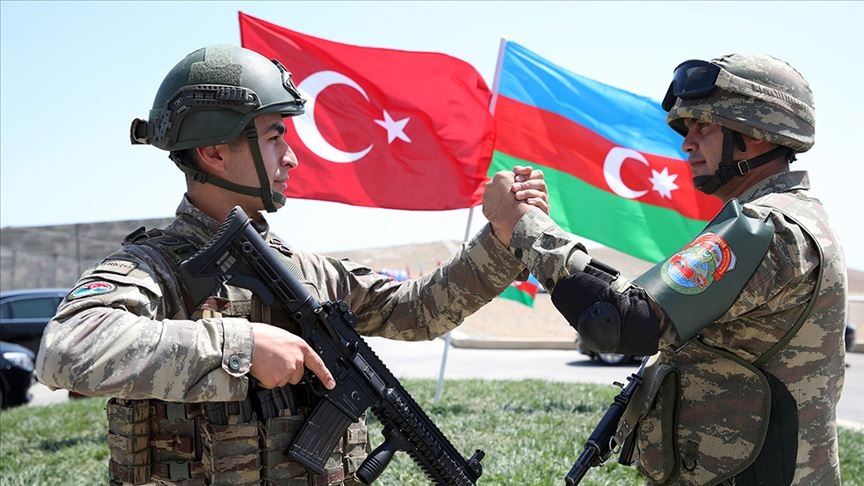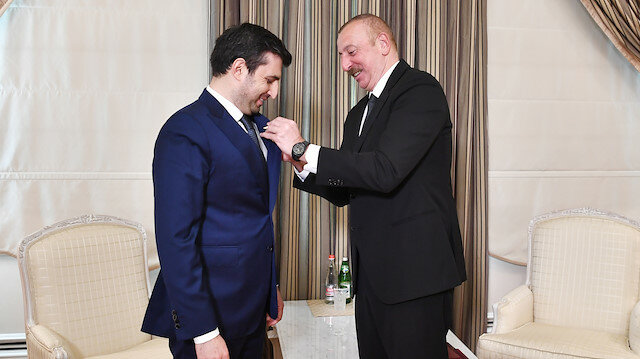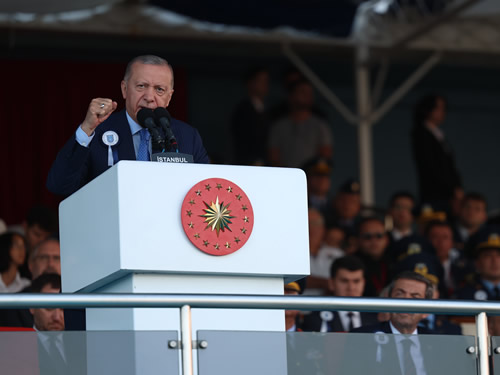Levent Kenez/Stockholm
Despite Baku’s official objections, Turkish President Recep Tayyip Erdogan continues to claim Turkey’s involvement in the Second Nagorno-Karabakh War in 2020, which concluded with Azerbaijan’s victory over Armenia. The continuing remarks by Erdogan have raised eyebrows as Baku had previously sought to emphasize its independent military capabilities during the conflict. While Turkey’s support for Azerbaijan during the war is widely recognized, the continued emphasis on Ankara’s role has sparked tensions between the two close allies.
Most recently, on August 31, during a speech at the Turkish Air Force Academy graduation ceremony, President Erdogan once again referenced the Nagorno-Karabakh War, stating, “In Azerbaijan’s Karabakh, together with our Azerbaijani brothers, we completely eliminated the enemy forces.”
Erdogan’s remarks came shortly after Azerbaijan’s official newspaper responded to previous similar statements. In an editorial published on August 1, the paper said, “Our people, army and commander view with disappointment and deep sorrow the attempts to claim and take ownership of our rightful victory. Azerbaijan’s victory is for the entire Turkic world, but Turkey is not its architect.”
“The Architect of the Karabakh Victory: Commander-in-Chief Aliyev and the Azerbaijani Army,” as stated in Azerbaijan’s official newspaper:
The editorial criticized recent statements made in Turkey, accusing them of distorting the facts of the 44-day war. It warned that such remarks play into the hands of Armenia, saying, “Our ancestors taught us that what one hand gives, the other should not know and that brothers do not boast about helping one another.” The piece further asked, “Even if we assume that Turkey provided all forms of support, including political and moral, during our Patriotic War, why should Armenia, Armenians worldwide, the US and France and other states and powers use this as a basis for manipulation?”

The editorial also expressed dismay over statements from Turkey mentioning unsolicited military aid to Azerbaijan. It emphasized that the information labeled as military aid was incorrect, stating, “All of this pertains to the commercial side of military cooperation. In other words, gentlemen, we paid for every bullet and every piece of ammunition and equipment we received!”
The editorial also addressed the involvement of Selçuk Bayraktar, President Erdogan’s son-in-law, and his company Baykar Makina, which produced the Bayraktar military drones used in the war. It noted that various examples of this cooperation were employed during the conflict. The piece highlighted that while Turkey’s Bayraktar drones were included in Azerbaijan’s robust air assault and defense systems, this technology was not the only component involved.
This article is not the first instance of Azerbaijan expressing discomfort with President Erdogan’s statements.
On July 28, during a party meeting in his hometown of Rize, Erdogan, referring to Israel, said, “Just as we entered Karabakh, just as we entered Libya, we should do the same with Israel. There is nothing stopping us. We just need to be strong to take this step.”
In response to Erdogan’s comments, an official from the Azerbaijani Ministry of Defense addressed local media, saying, “There is no basis for claims regarding the involvement of any country’s military personnel in the battles for Azerbaijan’s territorial integrity and sovereignty,” adding, “President Ilham Aliyev has repeatedly expressed his gratitude to the leadership of Turkey and Pakistan for their political support. The Azerbaijani Armed Forces suffered around 3,000 casualties during the war and 204 in a single counterterrorism operation.”
Although Baku had conveyed its message to Turkey through the media, the following day it formally expressed its concerns through diplomatic channels. On July 29 Azerbaijan’s ambassador to Turkey, Rashad Mammadov, met with Turkish Deputy Foreign Minister Mehmet Kemal Bozay to address the issue.

However, it seemed that Baku’s concerns were not addressed in Erdogan’s statements. On July 30 while criticizing Turkey’s main opposition Republican People’s Party (CHP) during a meeting with his party’s provincial chairmen in Ankara, Erdogan again said, “In our struggle to liberate Karabakh after 30 years of occupation, we received the harshest criticism from the CHP leadership. It was the CHP members who raised the Armenians’ baseless claims.”
Ambassador Mammadov then paid a visit to Deputy Foreign Minister Berris Ekinci the following day. The specific agenda of their meeting remains unclear, leaving open the possibility that it could have been related to Turkey’s purported role in the Nagorno-Karabakh conflict.

Turkey’s support for Azerbaijan during the conflict is widely recognized, including logistical and intelligence assistance and the use of Turkish-made drones by the Azerbaijani military. Turkish drone manufacturer Baykar Makina, led by Haluk Bayraktar, was notably honored by Azerbaijani President Aliyev, who awarded the Garabagh Order to Bayraktar on June 15, 2021 for his role in the 2020 Nagorno-Karabakh War. President Aliyev had previously awarded the same honor to Erdogan’s son-in-law Selçuk Bayraktar, co-owner of Baykar Makina, on April 1, 2021, praising the Bayraktar TB2 drones for their effectiveness in the conflict.
Additionally, on June 15, 2021, Erdogan and Aliyev met in Shusha, a city emblematic of the Armenian-Azerbaijani conflict, to sign the “Shusha Declaration.” This agreement, celebrated on Azerbaijan’s national day, underscores the deepening military cooperation between the two countries and Turkey’s support for Azerbaijan’s territorial integrity. A key provision of the declaration is the commitment to mutual military assistance in the event of an attack or threat from a third state, highlighting the strategic alliance between Turkey and Azerbaijan.












